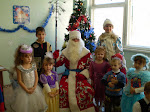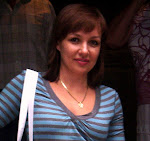I am happy to be back and this article will allow me to tell you about as I think the most interesting trip on a Trans Mongolian railway as this journey will allow you to visit a minimum of three countries, that is Russia, Mongolia and China.
Fascinating images exist in people’s minds when thinking about Russia. The most renowned ones are the Trans Siberian Railroad, cosmopolitan Moscow, European St. Petersburg with the Hermitage, Russian vodka, the enigma of the “Slavic sole” and the Siberian Winter.
Lots of cities and towns combination is open for a traveller’s imagination when you plan a trip on a Trans Mongolian Rail road. The trip duration will be dependent on your preferences, your knowledge of the places you will be interested in visiting as well as the time allowed from work to take this trip.
The best time to travel is of course when it is warm though some places offer more interesting and better activities during the winter time. It is certainly Irkutsk area and Lake Baikal. I have never been there myself but have heard a lot from people who have been and who are there now-live and work. The distinctive beauty of this lake and its magnificent surroundings make it a unique and exotic destination which promises to cater to your adventure needs. And every photo taken there will be a subject for your relations and friends to be jealous about.
It is only a short period between mid July and very early August when you can swim in the Lake. Fantastic experience! They say that when you stand next to the water it feels like you are near the air conditioner-so fresh and cool. Summer is rich for activities like fishing, hiking, mountain climbing, tours combining nature trekking along the shore of Baikal, white water rafting down a Siberian river and visiting the outstandingly beautiful Olkhon Island. A Relaxing trip to Olkhon at the end of the adventurous tour provides a perfect opportunity to see the magnificent beauty of Baikal, to observe the life style of native Buryat people and admire the famous Olkhon sunsets. Tourists can visit the most interesting and the most beautiful areas of Lake Baikal and make walking tours along the shore and into the taiga-forest. The best time is from mid June to mid September. Driving by a 4WD vehicle (similar to what they use in the Russian army) to the heart of the lake. On the route you can combine different activities like hiking, boating, exploring ancient rock paintings, camping on the solitary beach and trying your luck at fishing.
When thinking about winter, associations known from childhood immediately appear in one’s mind: the boundless snow plains, Russian troika rides, never ending frosts. Some of these stereotypes are true, some are not, some are just funny. But one thing is for certain, you will be surprised and mesmerized after visiting this mysterious land and making your long-standing dream a reality.
Winter is, after all, the most Russian of all of nature’s seasons,. A time of fur coats, sleigh-rides and chilled vodka. Even in the coldest months of December – January, life goes on in Siberia as schools, shops and theaters are open, public transport operating and winter sports enthusiasts come out to enjoy themselves in the cold environment.
Most of the winter, the temperature is about –14, -16°C during the day, which is OK to be out if you have proper clothes for subzero temperature. And year by year winters tend to be milder. Usually the layer of snow out in the plains and forests is 50 cm - 1.5 m, though in the mountains it may reach 2 - 3 meters.
That mono-colored world somehow strikes one’s imagination: the endless acres of snow, the tracks going seemingly nowhere, the groups of bare birches, the delicate reeds and huge frozen rivers and lakes. All these things capture the imagination of a “Siberian Winter”. It is therefore my pleasure to invite you to an exotic winter trip to the heart of Siberia where you will get a chance to visit the deepest freshwater lake in the world, Lake Baikal. The distinctive beauty of this lake and its magnificent surroundings make it a unique and exotic destination which promises to cater to your adventure needs. We offer a variety of activities in Irkutsk and at Lake Baikal ranging from one day excursions with dog sledding to a week of extreme skiing in the Siberian mountains or a few-day skating on the mirror of the crystal-clear Baikal ice. As well as winter sports, we offer you a chance to experience Russian culture through a Traditional Russian festival to “Farewell the Winter” and Russia's Lake Baikal annual International "Winteriada" - Baikal Nordic Games Festival held in March, which involve you into the magic fairytale of Siberian Winter. And should you have any particular interests here you are always welcome to send me an e-mail to natasha@realrussia.co.uk
You should now understand that I cannot imagine a Trans Mongolian or any other trip without visiting Lake Baikal.
Normally they prefer to stop in two –three places on the way to Beijing and as we are talking about the Trans Mongolian rail journey then it is certainly Mongolia and Ulan-Bator that could be the next stop.
There is a rail connection between Irkutsk and Ulan-Bator. Three trains are running here. Train no 362 is a daily one and with an evening departure which will travel two nights arriving very early in the morning (at 0610 Local time) to Ulan-Bator. Train no 4 runs every Saturday and train no 6 every Sunday and Monday. Both these trains depart very early at 0513 Local time and travel only one night arriving Ulan-Bator at 0730 am Local time.
The trip between Moscow and Irkutsk will be very easy to arrange. The train selection will depend on your preference, i.e. travelling class, departure time . There are several trains available between Moscow and Irkutsk on a daily basis and I can try and find a train that will fit your itinerary just right. There are certainly popular and fast good trains here and they are: familiar train no 2 Rossiya, train no 10 Baikal, Chinese train no 4 every Tuesday, train no 6 every Wednesday and Thursday. They say that the latter trains will not be possible to buy the tickets for just from Moscow to Irkutsk. This is not very right. We are able to purchase them without any problem regardless the international status for these trains. The tickets for the international trains like numbers 4 and 6 become available for sale 60 days before counting from the date of arrival of this train to the final destination, thought the tickets for trains like 2 and 10 can be obtained only 45 days before the departure date.
We are now close to Ulan-Bator. I will be ready to tell you more about this place and what to do there in one of my next articles. This issue will only touch the trains availability between Ulan-Bator and Beijing. There are only two trains running and they will be available three times a week for the summer season 2009. Train no 24 Mongolian every Thursday and Saturday and train no 4 Chinese every Sunday. The tickets for train number 24 can be only arranged in Mongolia and collected or delivered there. The tickets for train no 4 is available for issue in Russia only and it could allow a good chance to collect all the tickets for the entire trip before departing from Moscow.
Here we go and below I decided to give you an example of a classic route on Trans Mongolian railway including Moscow-Irkutsk-Ulan-Bator and finally Beijing.
Moscow-Irkutsk
Train no 2
Leaving on 05.01 at 2125 MT
Arriving on 09.01 at 0603 LT
1st and 2nd classes are possible here
Leaving on 12.01 at 0513 LT
Arriving on 13.01 at 0730 LT
1st and 2nd classes are possible
Train no 24
Leaving on 15.01 at 0805 LT
Arriving on 16.01 at 1430 LT
1st and 2nd classes are possible
The entire trip 2nd class will cost approx £ 520.00 pp one way and here the price could be approx £ 490.00 pp one way and the final will be dependent on where the tickets are issued and here I am talking about the tickets Irkutsk-UB first of all as sometime they are not available in Moscow and to be ordered from Irkutsk branch. You can guess it is certainly the case for the high season and during the low season it is normally easy in terms of buying the tickets for the above trip.
Thank you very much for your interest my dear reader!
Have a good day!

